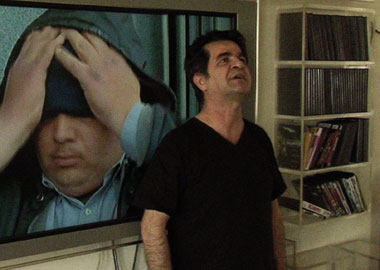Before we do anything else, let’s get right down to it: Pleasant Street Theater is closing. Those of you who were around four years ago—when the theater went dark for a spell before reopening under the aegis of the Amherst Cinema group—may be feeling a familiar sense of impending loss. That time, a last-minute effort by local film-lovers saved the little cinema, but this time, although some people are already raising a rallying cry, it’s probably going to be for good.
The news came in on Friday morning, and because of the holiday weekend the Advocate was going to press early. Yet even now, almost a week later, there hasn’t been enough time to really digest what the change will mean for Northampton and its filmgoers. When the neighboring video store closed last July, locals could (and did) cling to the idea that the theater remained as a place where they could commune with fellow cinephiles; soon that delusion will be dispelled.
Where will they go after June 8, when Pleasant Street shuts down the projectors for the last time? Is there still a future for first-run art films in Northampton? If so, where? And who will pay for it?
Right now, there are more questions than answers—look for a more in-depth reflection on what it all means in next week’s issue.
For now you can take in the world’s most appropriate film booking when Pleasant Street hosts a closing day celebration with free screenings of The Last Picture Show. Beginning at 10 a.m. and running into the night, the theater shows Peter Bogdanovich’s 1971 feature all day as the staff says goodbye to patrons. Set in a dying Texas town in the 1950s, the film tells a tale of change: a group of young men and women (Cybill Shepherd, Jeff Bridges and more) coming of age, sometimes painfully, in a place that has grown too small to hold them. As the town collapses in on itself, its inhabitants embark on a series of messy and painful affairs, desperate to latch on to something that still feels meaningful while everything around them—including the local movie house—is shutting down.
Also showing at Pleasant Street is This Is Not a Film, a documentary about the life of film director Jafar Panahi (The Circle) during his house arrest in a Tehran apartment. In an interesting twist, the film was shot partially on an iPhone—a technological feat unthinkable a few short years ago, it’s the sort of sea change in filmmaking (and, by extension, film watching) that has helped hasten the decline of the neighborhood moviehouse. The film, which was smuggled into France inside a cake in order to be submitted to the Cannes festival, allows Panahi a platform to reflect on what filmmaking—the very thing that got him arrested and banned from the art—means to him.
*
Also this week: Music lovers will be delighted to hear that it’s time again for the annual Django in June Gypsy Jazz Festival. The week-long event, now in its 10th season, brings together lovers of “jazz manouche”—a particularly European strain of jazz that melds our American music with French musette and Gypsy guitars—from all over the world. Once here, they settle in for a week of revelry, workshops, and concerts on the Smith College campus—and a pair of films at Amherst Cinema. Screening on Wednesday evening are two short films: Encounter with Francis-Alfred Moerman and A l’Ombre d’un Nuage. Each film focuses on key figures in the music’s history who have been largely overshadowed by the legacy of Django Reinhardt, the iconic guitarist whose style continues to light the way for generations of followers.
In the first film, father and son duo Sebastien and Antoine Boyer (who will also be on hand to perform a short concert) seek out F.A. Moerman, a wonderful but sometimes overlooked composer. When they find him at his home in the French countryside, they give him a private concert—of his own compositions—and discuss his memories of how the music began.
The second film is a look at the Ferret clan—perhaps the most famous name in the style after Django’s. A tightly knit bunch of brothers and cousins, the Ferret family retained their Gitan roots in their music; while Django’s “Gypsy jazz” leaned heavily on the latter, the Ferrets leaned the other way, becoming masters of the rippling arpeggios and virtuosic minor key waltzes that are so evocative of their 1920s Paris. Fans of any music will want to be at this show.
Jack Brown can be reached at cinemadope@gmail.com.



